Five organizations that campaign for human rights have united to oppose an amnesty for fighters in armed groups in Central African Republic as a trade-off for peace.
The armed groups have presented dozens of demands, including a general amnesty, to an African Union expert panel seeking to broker peace in the country, a dialogue that is scheduled to resume on August 27 in the western town of Bouar, when the armed groups will seek to “harmonize” their demands in meetings with the A.U. panel, before submitting a final list to the government.
RJDH reported that the general amnesty is one of 12 demands which are “non-negotiable.” According to RJDH, other demands include provision for a national dialogue to be held in a neutral negotiating country that eventually leads to constitutional change, that the groups be consulted on the choice of prime minister, and a process for the transformation of armed groups into political organizations.
In a joint statement published on Thursday, August 24, the Central African Human Rights League (LCDH), Central African Human Rights Observatory (OCDH), Amnesty International, Human Rights Watch and the International Federation for Human Rights (FIDH) said a general amnesty “would be incompatible with the government’s duty to bring those responsible for grave international crimes to justice and with victims’ rights to accountability.”
“The armed groups at the negotiating table are suspected of having committed numerous grave abuses against civilians, such as murder, rape, sexual slavery, torture, looting, persecution and destruction of religious buildings,” the joint statement said.
“It is unthinkable that individuals implicated in the most serious crimes should be able to secure themselves amnesty at the negotiating table, and this idea should be forcefully rejected outright by the government,” said victims’ lawyer Mathias Morouba, OCDH president.
In a working paper, the A.U. and Central African authorities have noted “that impunity has never constituted a durable solution to the current crises,” the five human rights groups said.
“In 2015, the Bangui Forum [made up of] more than 800 representatives of civil society, community organisations, political parties and armed groups from all over the territory prioritized justice as one of its main recommendations, specifying that ‘no amnesty’ would be tolerated for those responsible for and acting as accomplices in international crimes,” they said.
They noted that CAR’s new Special Criminal Court, which operates with international participation and support, has a mandate to try war crimes and crimes against humanity, and is opening investigations after its rules of procedure were adopted in May.
One of Africa’s poorest countries, majority-Christian Central African Republic descended into violence following the 2013 ousting by a coalition of Muslim-majority rebel groups of President Francois Bozize, a former general who himself seized power in a coup in 2003.
The coalition, called Seleka was officially disbanded within months, but many fighters refused to disarm, becoming known as ex-Seleka. Many others joined the mainly Christian anti-Balaka militia to fight the Seleka, leading to a spiral of violence between groups along both religious and ethnic lines.
By the end of 2014, the country was de facto partitioned – anti-Balaka in the southwest and ex-Seleka in the northeast.
The violence by both sides led to thousands of deaths. Nearly 700,000 people are displaced, 570,000 are refugees abroad and 2.5 million are in need of humanitarian aid, according to the United Nations.
Despite rich reserves of diamonds, gold and uranium, Central African Republic is one of the world’s pooest countries.
President Faustin-Achange Touadera’s weak government controls around a fifth of the country and relies heavily on the United Nations peacekeeping mission, Minusca, for support. The rest is controlled by at least 14 different militia groups who often fight each other for control of revenue from extortion, roadblocks or mineral resources.
Seven peace deals have been signed for the CAR since 2012, but no mediation bid has yet resolved the interwoven crises.
Another demand received by the African Union panel is a review of military deals between Central African Republic and Russia, AFP reported. Russian advisors work with CAR’s military and provide security and advice for Touadera.
With reporting from AFP



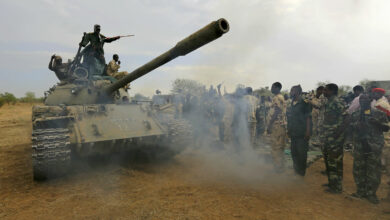
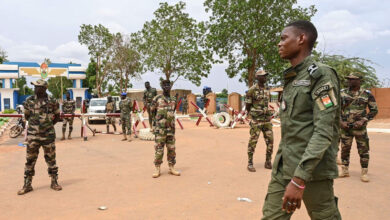
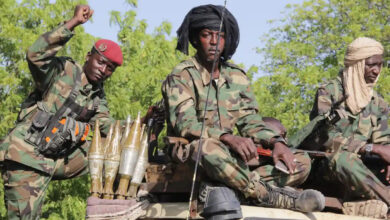
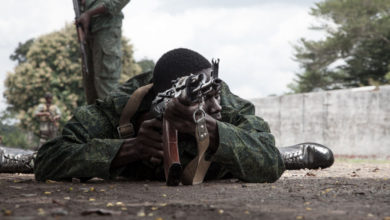

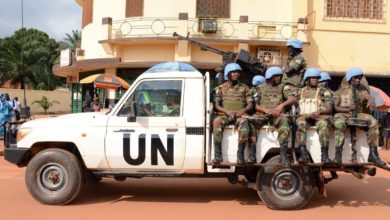


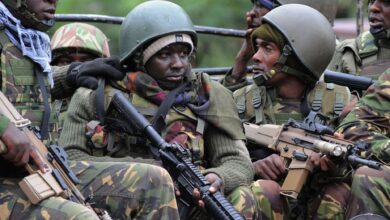
3 Comments